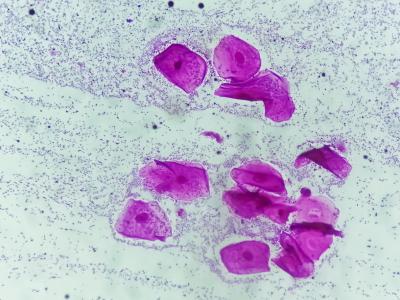Apr 22, 2010
Chicago-based project aims at combating emerging epidemics
A unique program to study new pathogens and pathogens switching species has been established by the Field Museum and the University of Chicago. The program, titled the Emerging Pathogens Project, will focus its research on diseases in animals that may jump to other animals or to humans and cause future epidemics. Researchers will extract DNA from animals and from organisms infecting the animals to build a database of information on emerging animal and pathogen biodiversity; a team began last fall with an expedition to Malawi. The Institute for Genomics and Systems Biology at the University of Chicago will supervise in-depth studies on selected high-risk pathogens to predict such things as how they might spread, how they might affect the environment, and how to contain and treat them.
Apr 22 Medical News Today article
Live vaccines could be diversifying Newcastle virus
The common practice by poultry farmers worldwide of vaccinating birds against Newcastle disease with attenuated live virus may be altering the genetic makeup of wild virus strains, according to a report released today in Public Library of Sciences (PLoS) Pathogens. One of two strains of live virus is generally used for Newcastle vaccine. Researchers at Penn State found that birds could be infected with the vaccine strain and one or more circulating strains simultaneously, opening the possibility for recombination and the creation of new viruses. Wild birds can be exposed to the vaccine strain through viral shedding by poultry, plus farmers often vaccinate flocks by adding vaccine to their drinking water or aerosolizing it, further heightening the possibility of wild bird exposure. The authors stress that development and use of killed or inactivated virus vaccines should be considered to combat Newcastle virus evolution.
Apr 22 PLoS Pathog report
Apr 22 Penn State press release
Panel unanimously upholds Lyme disease guidelines
A special independent review panel today unanimously agreed that no changes need be made to the 2006 Lyme disease treatment guidelines developed by the Infectious Diseases Society of America (IDSA), according to an IDSA press release. The guidelines were the subject of an antitrust investigation begun in 2006 by Connecticut Attorney General Richard Blumenthal, who questioned whether the guidelines' authors had conflicts of interest and failed to consider divergent medical opinions. The review panel was set up as part of an agreement to end Blumenthal's investigation. At issue is whether a "chronic" form of Lyme disease exists. Self-described "Lyme-literate" physicians believe that it does and requires costly treatment with antibiotics for months or years, which goes against the IDSA guidelines. The panel, however, agreed that all the recommendations in the guidelines are medically and scientifically sound, including its statement that there is no convincing evidence for the existence of chronic Lyme infection and that long-term antibiotic treatment is unproven and unwarranted. The panel wrote in its report, "In the case of Lyme disease, there has yet to be a single high quality clinical study that demonstrates comparable benefit to prolonging antibiotic therapy beyond one month."
Apr 22 IDSA press release
Apr 22 review panel's final report





















